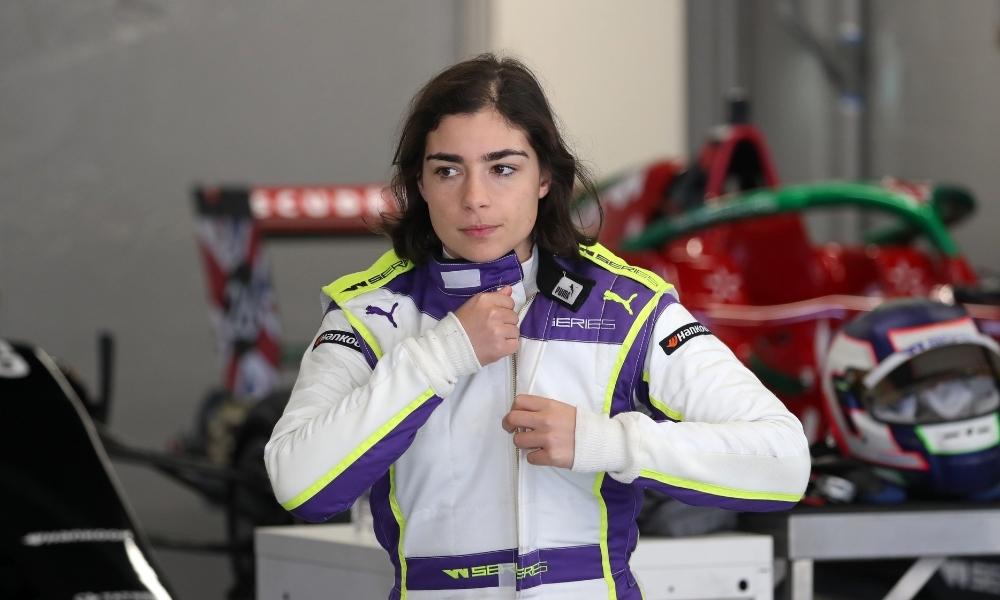Silence can often be deafening.
Unfortunately, that was how several organisations in motorsport opted to greet the sudden end to W Series’ third season due to a lack of funds.
In a sobering statement, the all-female series explained that the axe had to fall primarily because contracted funding from an investor failed to arrive, prompting a cashflow crisis and the rug being pulled from under W Series’ feet. It is not the first time the championship has had to scrap a season, after the 2020 campaign was ditched because of Covid-19. Back then, though, the series was not alone. In this instance, it looks increasingly isolated.
Announcing the decision to call off this year’s campaign, W Series chief executive Catherine Bond Muir painted a picture on behalf of the drivers that blended deep-rooted frustration with the challenging reality the organisation faces.
“I had a Zoom call with the drivers and it was incredibly similar to the conversation I had with them about cancelling 2020 because of Covid,” she said.
“They are drivers in their blood and all they want to do is race and they were incredibly upset. At the same time they were understanding, but really the feeling that came out of it was ‘yeah, this is rubbish, but Catherine, this is what we’ve dealt with for 20 years.
“‘We’ve had promises of money, we’ve had contractual commitments for money and they haven’t come through, we’ve had lots of people saying they are going to support us and it doesn’t happen.’
“It was more of a feeling of ‘welcome to our world.’”
To Bond Muir’s credit, she does not want this to be the end and remains “extremely confident” there will be a fourth edition of W Series in 2023. To that end, the time that would have been spent completing this season is now going to be focused on securing the necessary funding to ensure the financial viability of the championship into next year and beyond.
Before that, several questions need to be answered: can the championship keep covering the bulk of drivers’ expenses, will it continue as a Formula One support event, and is it still capable of offering a route up the motorsport ladder?
There is, however, another thing to ponder – where were the International Automobile Federation (FIA) and Formula One during all of this?
For all the goodwill directed towards W Series and its goal of enhancing opportunities for female drivers, it speaks volumes that neither organisation opted to step in with emergency funds, despite their ties to the championship.
Less than a month earlier, the new FIA president Mohammed Ben Sulayem insisted the governing body remained committed to getting more women involved with motorsport. His comments were a tonic of sorts to the view of Formula One president and chief executive Stefano Domenicali, who previously admitted he doesn’t “see a girl coming into F1 in the next five years”.
It should be noted the Italian declared he was “totally dedicated” to giving “maximum possibility” for women to race in the sport’s pinnacle series. But the fact remains that a woman has not competed in Formula One since 1976, when Lella Lombardi finished 12th at the Austrian Grand Prix.
The FIA and Formula One are well within their rights not to have handed out money to W Series. The championship would hardly want to be viewed as a charity case and surely wants to demonstrate that it can represent a strong business proposition for investors.
Yet there are times when fiscal intervention is needed to serve the greater good. In W Series’ case, it could have been seen as a hand up rather than a handout.
If the FIA and Formula One wanted to strengthen their allegiance to women’s racing, this was the moment. Their funds could have provided much needed stability for W Series going into next season, enabling it to focus on finding viable investment to secure its long-term future while also seeing out the 2022 campaign.
It is not like Formula One’s owner Liberty Media is fishing around for spare change – the series saw its profits leap 49 per cent year-over-year (YoY) to US$774 million in the second quarter of this year. Top Formula One teams are hardly penny-pinching either. Red Bull Racing was found guilty of exceeding the sport’s US$145 million budget cap, while Mercedes increased its profits by US$61 million during the 2021 season.
Again, this is not about making W Series an exception to harsh business realities. Formula One should not underwrite it forever. But amid all the goodwill around the championship, the lack of investment shows that fledgling women’s sports properties need more than just kind words to succeed.
Yes, there should be some expectation to deliver financial return. But not right away. Just look at any startup. Being wedded to the bottom line can distort plans and result in short-term wins eclipsing sustained prosperity.
W Series’ demise, even if might only be temporary, is also incongruous with what has been a transformative year for women’s sport, spearheaded by major events such as Uefa Women’s Euro 2022. Ignoring Bond Muir’s calls for partners would feel like a sizeable step backwards.
Entry into Formula One can be dishearteningly elitist – getting a seat often requires millions of dollars in backing. W Series’ situation was crying out for motorsport to rally behind the championship in the way other sports have backed their women’s properties and join the rising tide.
Ed Dixon covers the international sports business for SportsPro and is a contributor to the SportsPro Podcast. Follow him on Twitter here.

